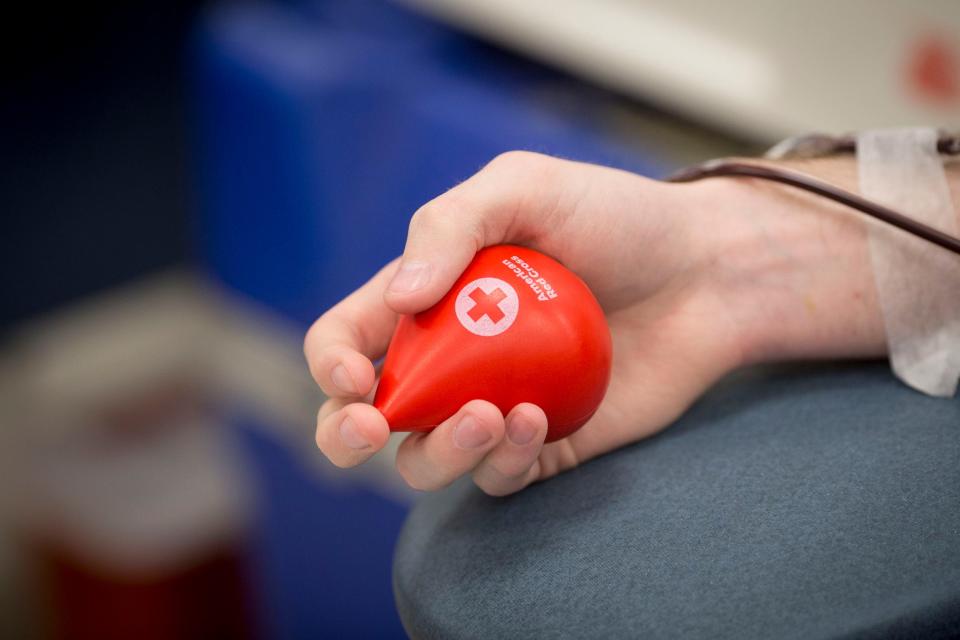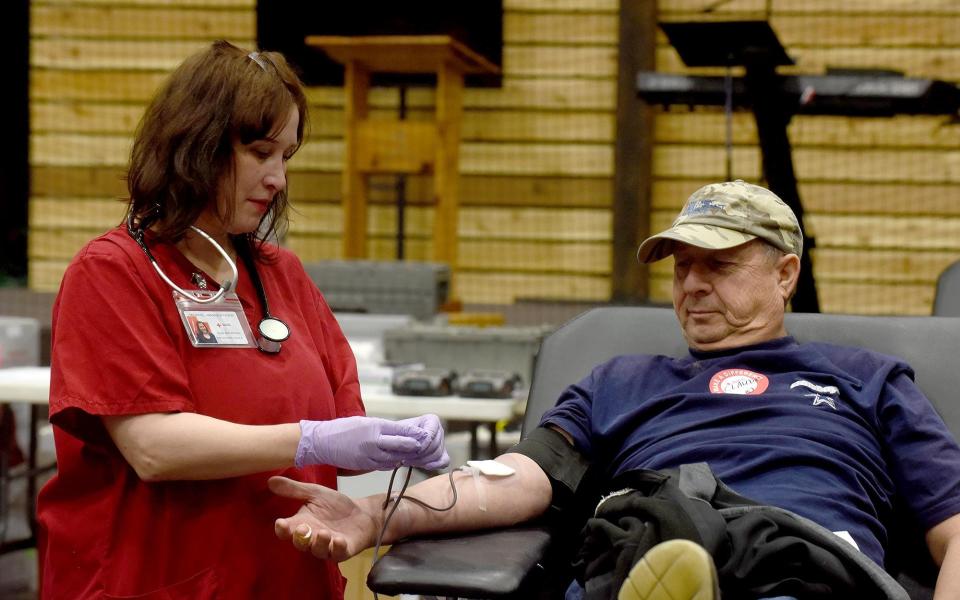National blood shortages beginning to affect some local healthcare providers
PITTSBURGH – As blood donations continue to remain low across the country, some local healthcare providers are beginning to see the trend's effects on their own supplies.
With donations in the western Pennsylvania region remaining low since the COVID-19 pandemic, members of the Allegheny Health Network say that they are beginning to see the effects that the lower blood supply will have on their healthcare facilities. While this has not caused delays for any necessary procedures at their hospitals, these lower supplies are causing the hospital to be cautious with their usage.

"We have seen the regional blood supply dip into only a short amount of the reserves several times this year, including a platelet shortage in the past few weeks," said Dr. Allan Philp, chief medical officer for Allegheny General Hospital. "AHN has not had to ration products or cancel cases, but we have had to be very rigid in using the best available science in deciding who truly needs a transfusion, and continue to focus on blood preservation techniques in the emergency departments, operating rooms and intensive care units."
These blood shortages are reflective of a national trend of blood shortages around the United States, caused primarily by a reluctance of communities to donate blood since the start of the COVID-19 pandemic in March of 2020. The American Red Cross declared a "national blood crisis" earlier this year, which the organization said has forced many doctors to make hard decisions about who can receive transfusions across the country.
In June, representatives for the Red Cross said that donations for blood and platelets across Pennsylvania were 12% lower than expected, making it one of the largest shortfalls in recent years. In western Pennsylvania, there were 1,164 fewer blood donations than what was expected for the month.
While AHN hasn't had to be as selective about surgeries and transfusions as some hospitals around the country have, this limited supply does create concerns about emergencies that may occur in the future.

"The fear is that if a surgical case turns out to be more difficult than hoped and blood loss is higher, or there are multiple traumas at the same time in the same area, that the more limited supply could be exhausted and then patients might not receive the life-saving transfusions they would require," Philp said. "Vitalant, our local supplier/manager for blood, has resources around the country and so can resupply from elsewhere, but like any shipping or transport process that takes time."
In order to reduce these risks, doctors are asking community members to consider donating blood whenever possible. Since fewer community blood drives took place during the pandemic, people are encouraged to talk to their friends, families and neighbors about considering donations as well.
"The key in the community is blood donation," Philp said. "We’ve really seen a dip in donation that started during the pandemic hasn’t yet gotten back to the levels of a few years ago ― which is especially worrisome in the summer months, when traumatic injuries are high — the motorcycles, ATV’s, and boats are out, people are gathering in large groups more frequently, and the need for blood products to treat the ensuing injuries goes up."
Those looking to donate blood are encouraged to do research online to find draw sites close to them, which will benefit various healthcare systems across western Pennsylvania in need of blood supplies for necessary surgeries and other procedures.
When asked about potential blood shortages at UPMC and Heritage Valley facilities, both healthcare systems said that they are not experiencing any shortages and the national issue has not affected any procedures at their locations.
Red Cross offering incentives throughout August for blood donations
For those looking to help local hospitals replenish their blood supplies, an extra incentive is being offered by Red Cross to donate at one of their draw sites this month.
Throughout August, those who donate blood with the American Red Cross will receive a $10 e-gift card for a retail location of their choice. In addition to the immediate reward, all donors will automatically be entered for a chance to win "gas for a year," which is valued at $6,000.
To schedule an appointment to donate, visitors are encouraged to download the Red Cross Blood Donor App, visit RedCrossBlood.org or call 1-800-RED CROSS (1-800-733-2767). There is currently a need for all blood types.
This article originally appeared on Beaver County Times: National blood shortages beginning to affect some local healthcare providers

